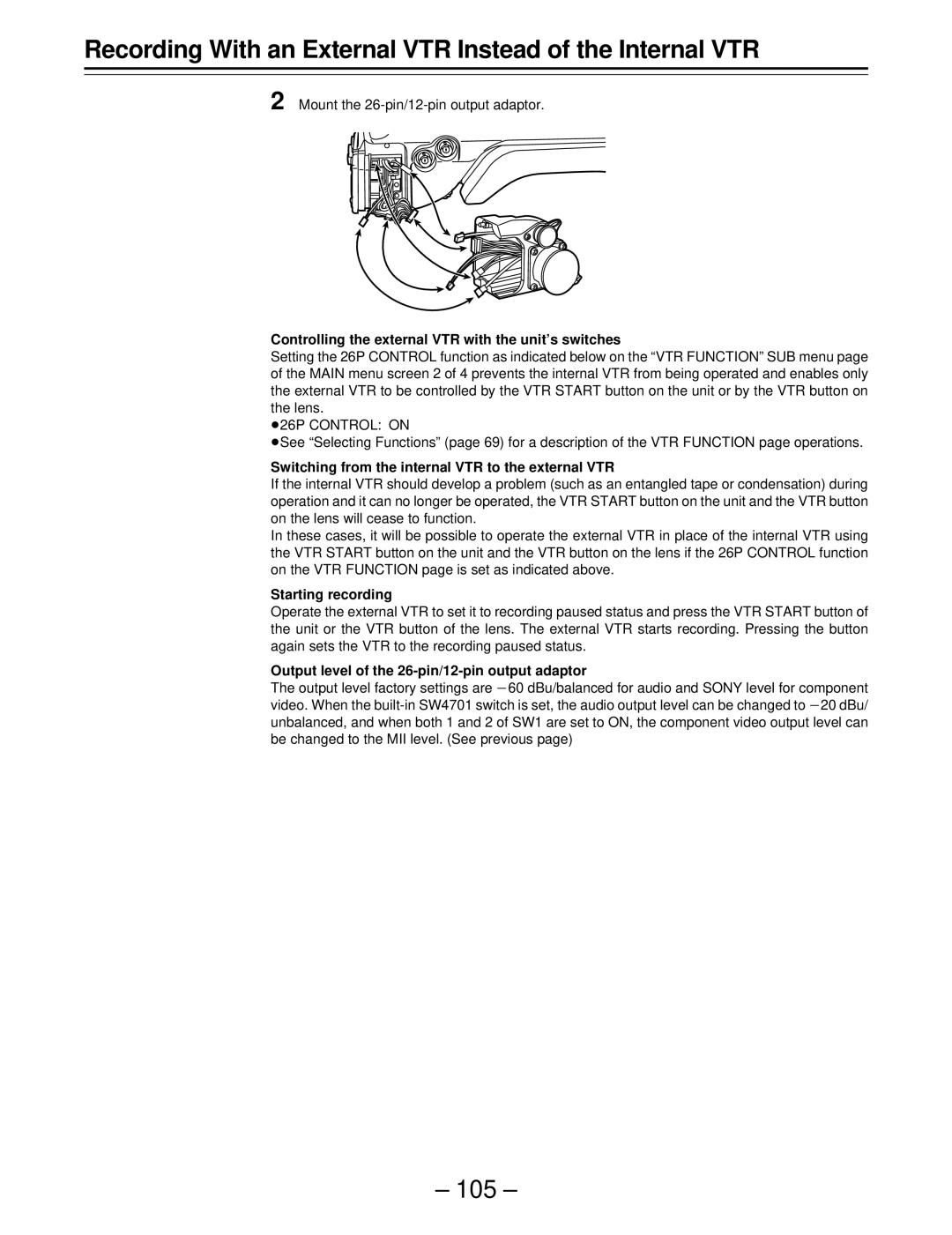
Recording With an External VTR Instead of the Internal VTR
2 Mount the
Controlling the external VTR with the unit’s switches
Setting the 26P CONTROL function as indicated below on the “VTR FUNCTION” SUB menu page of the MAIN menu screen 2 of 4 prevents the internal VTR from being operated and enables only the external VTR to be controlled by the VTR START button on the unit or by the VTR button on the lens.
Á26P CONTROL: ON
ÁSee “Selecting Functions” (page 69) for a description of the VTR FUNCTION page operations.
Switching from the internal VTR to the external VTR
If the internal VTR should develop a problem (such as an entangled tape or condensation) during operation and it can no longer be operated, the VTR START button on the unit and the VTR button on the lens will cease to function.
In these cases, it will be possible to operate the external VTR in place of the internal VTR using the VTR START button on the unit and the VTR button on the lens if the 26P CONTROL function on the VTR FUNCTION page is set as indicated above.
Starting recording
Operate the external VTR to set it to recording paused status and press the VTR START button of the unit or the VTR button of the lens. The external VTR starts recording. Pressing the button again sets the VTR to the recording paused status.
Output level of the 26-pin/12-pin output adaptor
The output level factory settings are p60 dBu/balanced for audio and SONY level for component video. When the
– 105 –
